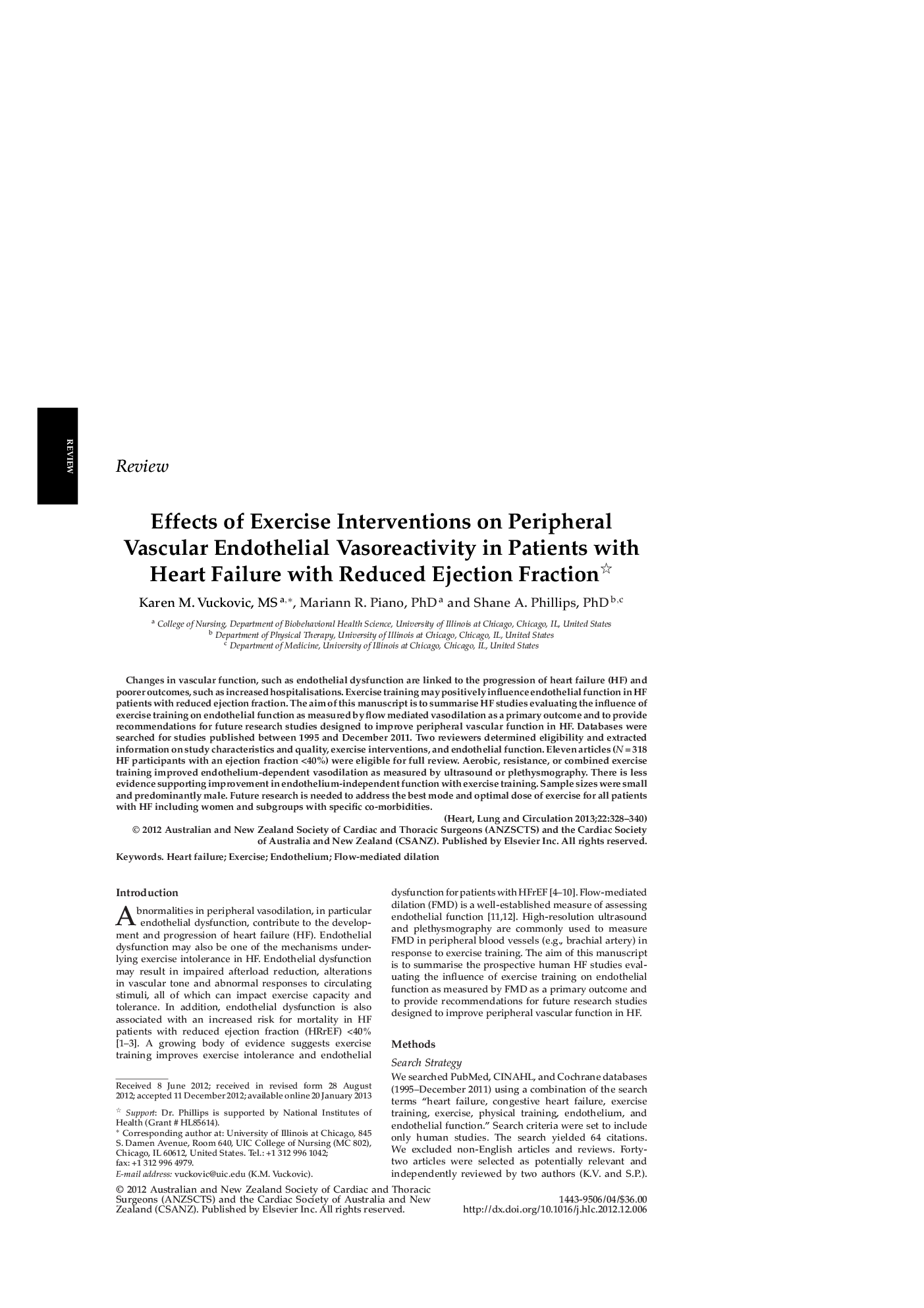| Article ID | Journal | Published Year | Pages | File Type |
|---|---|---|---|---|
| 2919031 | Heart, Lung and Circulation | 2013 | 13 Pages |
Changes in vascular function, such as endothelial dysfunction are linked to the progression of heart failure (HF) and poorer outcomes, such as increased hospitalisations. Exercise training may positively influence endothelial function in HF patients with reduced ejection fraction. The aim of this manuscript is to summarise HF studies evaluating the influence of exercise training on endothelial function as measured by flow mediated vasodilation as a primary outcome and to provide recommendations for future research studies designed to improve peripheral vascular function in HF. Databases were searched for studies published between 1995 and December 2011. Two reviewers determined eligibility and extracted information on study characteristics and quality, exercise interventions, and endothelial function. Eleven articles (N = 318 HF participants with an ejection fraction <40%) were eligible for full review. Aerobic, resistance, or combined exercise training improved endothelium-dependent vasodilation as measured by ultrasound or plethysmography. There is less evidence supporting improvement in endothelium-independent function with exercise training. Sample sizes were small and predominantly male. Future research is needed to address the best mode and optimal dose of exercise for all patients with HF including women and subgroups with specific co-morbidities.
